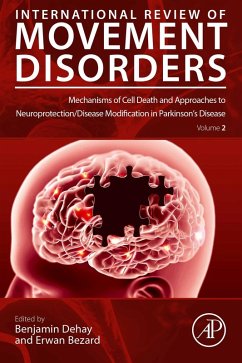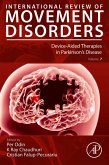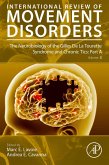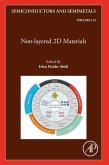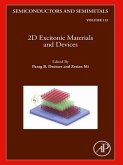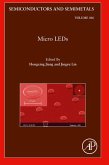Along with degeneration, the pathological hallmark of PD is the presence of intraneuronal proteinaceous cytoplasmic inclusions, named Lewy Bodies (LB) that invade the whole nervous system as the disease progresses. Several fundamental discoveries have shed light upon the implication of the a-syn protein in the pathogenesis of familial and sporadic forms of PD. Other proteins also accumulate in LB, but a-syn is a major protein component of the pathological landmarks.
- Updates on the latest research surrounding Mechanisms of Cell Death in Parkinson's Disease
- Includes In vitro and In vivo models of synucleinopathy
- Presents therapeutic strategies in Parkinson's Disease
Dieser Download kann aus rechtlichen Gründen nur mit Rechnungsadresse in A, B, BG, CY, CZ, D, DK, EW, E, FIN, F, GR, HR, H, IRL, I, LT, L, LR, M, NL, PL, P, R, S, SLO, SK ausgeliefert werden.

